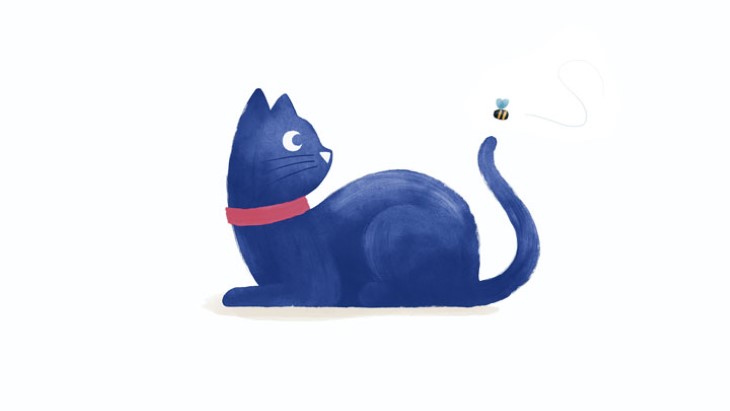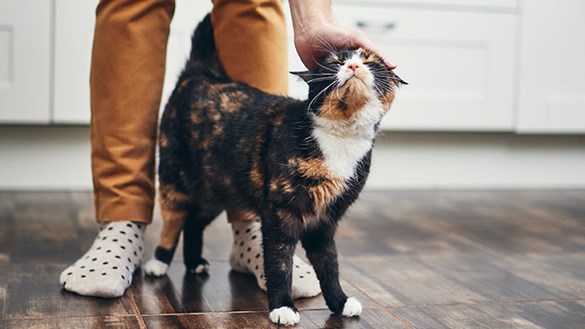Obesity In Cats
If you’re worried that your cat is becoming overweight, now is the time to nip it in the bud before it affects their health and wellbeing.
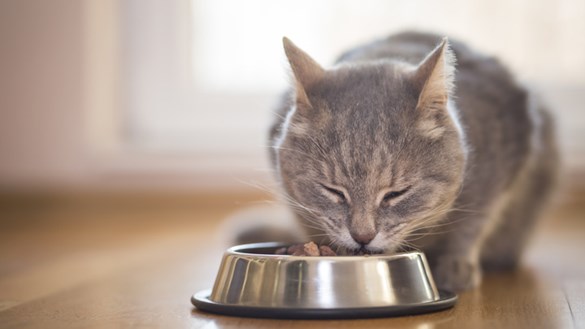
Obesity in cats
Making sure your cat has a nutritious and balanced diet is one of the best things you can do for their health. Obesity is becoming a big problem in the UK with vets seeing increasing numbers of overweight pets. With so many nice foods for cats to eat and well-meaning neighbours who offer them tasty treats, it’s no surprise some of them are carrying a few extra pounds.
Carrying a bit of extra weight might not seem too bad but too much fat, or being underweight, can shorten your cat’s lifespan. A balanced diet, will ensure the health of your feline friend for many years to come.
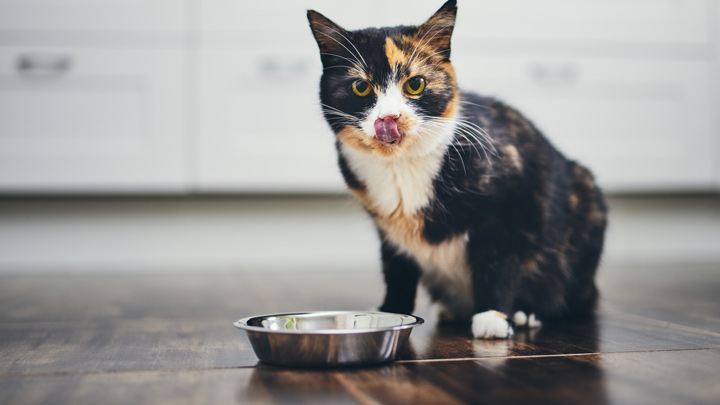
How do I know if my cat is overweight?
You may notice physically if your cat feels a little softer or a bit heavier when you pick them up for a cuddle but if you’re not sure there are certain signs you can check for:
- It’s hard to feel your cat’s ribs
- No obvious waist when you look at them from overhead. In fact, they may bulge outwards behind the ribs
- Belly is rounded and hangs down
- Backbone can’t be felt or seen, covered by large fatty deposits
- Bulging fat around the base of the tale
Risks of obesity in cats
It’s thought as many as 40% to 50% of cats in the UK are overweight or obese. Overweight cats are 10-19% heavier than their optimal weight. Cats considered obese are 20% or more heavier.
Being overweight can shorten their life expectancy and increase the likelihood of diabetes and urinary infections. It can also increase their chances of liver disease, cancer and breathing problems. Plus, cats who are obese may suffer from joint problems, reduced mobility and struggle to groom themselves.
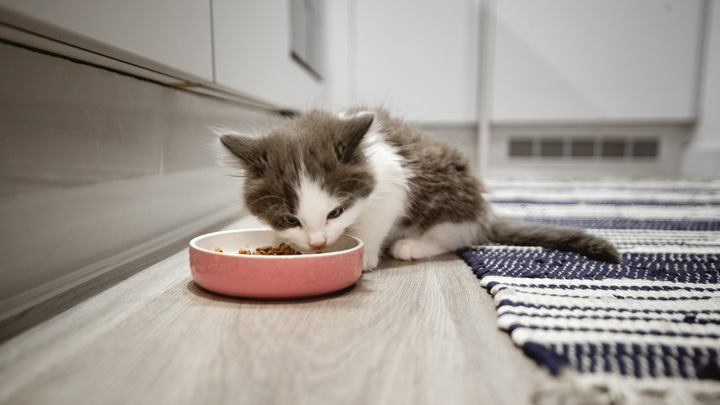
How do I prevent my cat from becoming overweight?
Your cat needs a balanced diet with the right nutrients and just the occasional treat. If food is highly palatable, calorie dense and freely available they’ll start to gain weight. You should feed your cat a complete food which contains all the nutrients they need and pay close attention to the recommended amounts for your cat’s weight.
The food should also be age appropriate because your pet’s energy requirements will change as they age. There’s no harm mixing it up with wet and dry foods to give them something interesting, just be sure you’re giving them the right amounts written on the packets and not inadvertently feeding them twice.
What should I do if my cat is overweight?
Don’t panic and put them on a crash diet – cats still need plenty of nutrients and losing weight too rapidly can cause liver disease. Never, ever starve a cat or be tempted to "skip meals".
You should feed them the amount recommended for their ideal weight, not their actual weight. If you’ve accidentally been overfeeding them, cut the amount down gradually over a week or two and split their allowance into two or more servings so they can graze throughout the day – cats have evolved to eat little and often.
You should also encourage your cat to move more. Interactive toys can help keep them on their feet and you can even walk your feline through the house on a lead.
Remember, the weight gain didn’t happen overnight, and weight loss is a gradual process too. Sometimes it can take up to a year or longer. Trust in the process, give the right amount of food and your cat will eventually slim down.
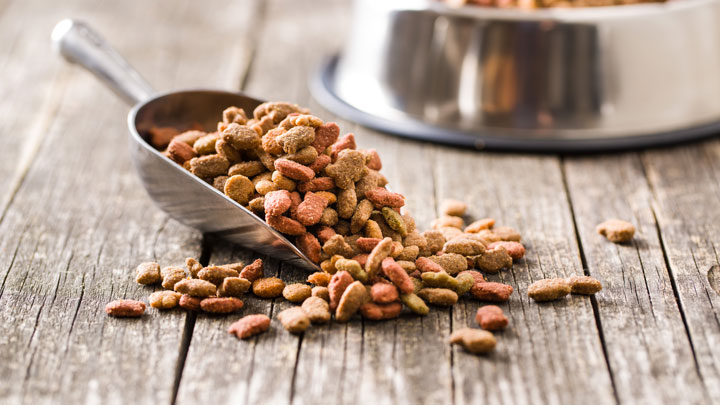
How many treats should I feed my cat a day?
Everyone loves a treat and cats are no different, but they do add calories if not given in moderation. Rather than giving them daily treats, try to offer them just two or three times a week instead.
What are the healthiest treats for my cat?
Cat treats shouldn’t account for more than 5-10% of your cat’s daily calorie intake but there are some healthier options they will no doubt love, in moderation of course. You could try a little cat milk (not cow’s milk), tuna, chicken or salmon flakes. Catnip is another good option or commercially available biscuit treats – just remember to check the calories before you buy.
When should I see a vet?
It’s sometimes difficult to manage an overweight cat’s diet, particularly if you have non-overweight cats in your household too. A vet can help devise the right feeding regime for your pet and monitor their progress over the coming weeks and months. You should also see your vet if your pet’s weight is impairing their daily life. Medivet practices have weight clinics. Speak to your vet to find out more.


